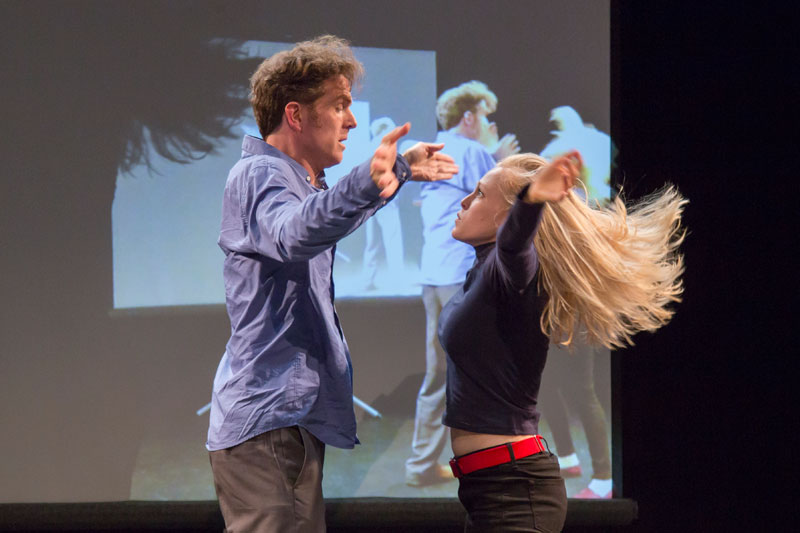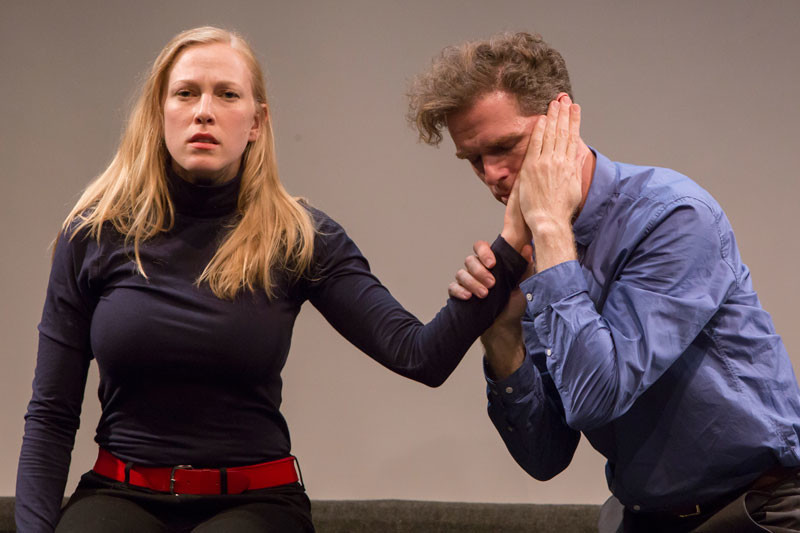It’s funny how relationships develop. The prolific and inventive writer-director-performer Mark Jackson and intense up-and-coming actress Megan Trout have been working together off and on since Trout was in college. Jackson directed Trout in the devised work Juliet at San Francisco State in 2010, when Trout was a student there, then in Metamorphosis at Aurora Theatre Company and Bonnie and Clyde at Shotgun Players.
For more than a year, Trout and Jackson have been collaborating on a two-person performance piece, Now for Now, that charts the relationship of a fictional Mark and Megan over the course of 40 years. After several workshops, the play is premiering at Z Below in San Francisco’s Mission neighborhood.
The two actor take turns recounting landmarks in their lives and in their on-again, off-again relationship, often offering very different perspectives on the same event. In one version, they’re father and daughter. In another, boyfriend and girlfriend. And in a third, teacher and student. They’re substantially the same characters each time, with most of the same milestones and chapters in their story. It’s just that the nature of their relationship has changed.
There’s nothing like parent-and-child characters abruptly morphing into lovers to set a tone of unease. Now for Now is peppered with intensely uncomfortable moments, from simulated sexual acts to the kind of cruel personal attacks that can never be unsaid. Trout sets the tone at the end of her introduction by saying, “So I’m going to go ahead and start by pissing myself in front of you,” and seemingly proceeding to do so.
In these highly personal, vulnerable moments, the onlooker’s impulse is to wince or look away—or rather it would be if the abstracted, presentational quality of the performance were not engineered to create aesthetic distance. Even so, the theater is often eerily quiet. It’s as if the audience is holding its breath, relieved by the occasional burst of laughter.

The show includes frequent reminders that this is a carefully scripted performance rather than a confessional. There’s a tight, ritualistic structure to the back-and-forth narration, broken up by some beautifully melancholy and often funny dance sequences: an intense tango involving rock-paper-scissors and hand-slap games, a tender slow dance circling around and atop a stool.


